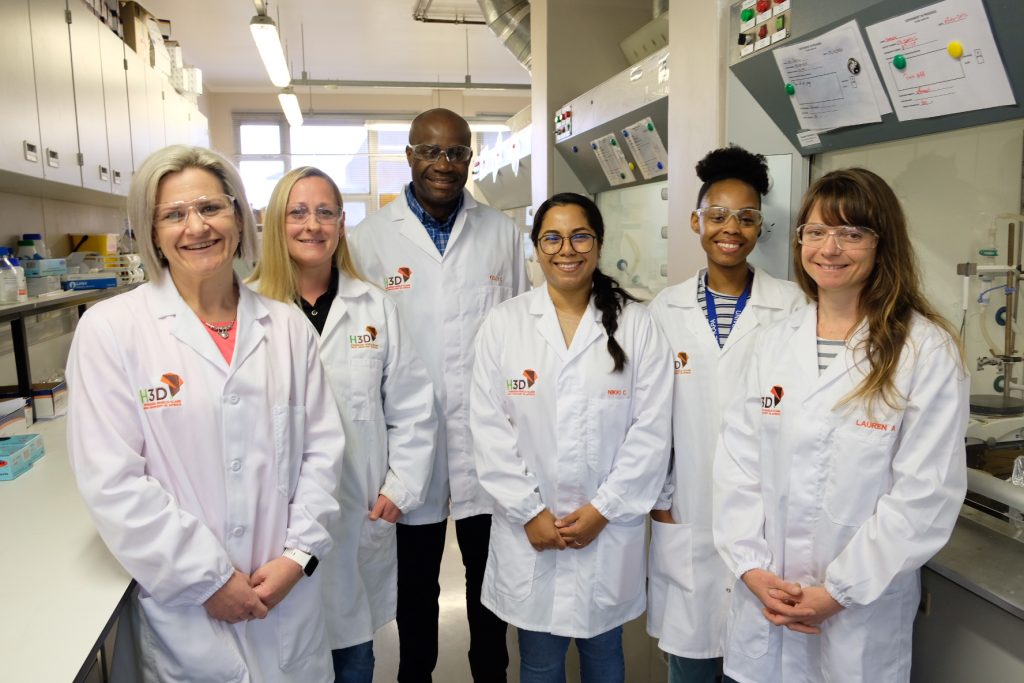
A formidable disease that has plagued humanity for centuries, malaria has exacted a heavy toll on human lives, disrupting communities and hindering socio-economic progress across some of the most vulnerable regions of the world, particularly the African continent.
With its stealthy transmission through the bites of infected mosquitoes, malaria has earned the dubious reputation of being one of the deadliest vector-borne diseases on the planet. So much so that the World Health Organization’s World Malaria Report reveals that malaria cases are on the rise, with instances rising from 245 million cases in 2020 to over 247 million a year later1.
With an estimated 619,000 people succumbing to the disease in 20211, it remains a defining challenge for global healthcare systems. However, through the unyielding persistence and spirit of medical innovation and scientific ingenuity exemplified by research facilities such as the University of Cape Town’s Holistic Drug Discovery and Development Centre (H3D), solutions to mitigate the severity of malaria are on the horizon.
“As the first and only integrated drug discovery platform on the African continent, H3D’s mission is to discover and develop innovative life-saving medicines for diseases that predominantly affect African patients,” explains Bada Pharasi, CEO of the Innovative Pharmaceutical Association of South Africa (IPASA).
H3D’s focus on building Africa-specific models aims to improve treatment outcomes in African patients and to educate and train a critical mass of skilled African-based drug discovery scientists. H3D’s scientific output and research model includes attracting international investment in local innovative pharmaceutical research and development (R&D) across the African continent to address the disproportionately high global disease burden. Importantly, H3D targets critical infectious diseases, including tuberculosis, antibiotic-resistant microbial diseases, and malaria.
“Given the vulnerability of many of the African populations, the continent accounted for 95% of malaria cases and 96% of malaria deaths in 20211. Accordingly, continued antimalarial drug research and development, such as the studies conducted by H3D, is important to prevent and treat the millions of cases that arise each year, all of which have consequences on both the health and socioeconomic development of the continent,” adds Pharasi.
Since the official launch of H3D’s programs in April 2011, there have been notable advances in innovative drug discovery projects. The centre has demonstrated a strong track record with multiple chemical series discovered and being progressed at H3D in each stage of the drug development pipeline.
A significant achievement reached by H3D was the discovery of the malaria clinical candidate, MMV390048, which reached phase II human trials in African patients. This was the first ever small molecule clinical candidate, for any disease, researched on African soil by an African drug discovery research unit.
According to Dr Candice Soares de Melo, Chief Investigator at H3D, the centre’s current anti-malarial programmes will focus on the identification of quality leads suitable for optimisation and candidate selection as potential agents for the treatment of uncomplicated Plasmodium falciparum malaria, ideally with additional activity against liver-stage parasites to offer protection and prevent relapses (in case of malaria caused by the species Plasmodium vivax), as well as blocking the transmission of the disease.
“A critical component of the research conducted at H3D is to develop medicines that are safe and sufficiently tolerated to be given to the widest range of recipients, including infants and pregnant women,” says Soares de Melo.
Besides the potential benefits of providing a new cure for malaria, H3D serves as a catalyst for training scientists in infectious disease research and influencing the R&D environment in Africa. As part of its partnership with the South African Medical Research Council, H3D has worked to mentor and develop scientists at other African universities, including those at Historically Disadvantaged Institutions (HDIs) within South Africa.
Furthermore, apart from strengthening drug discovery innovation at UCT, the centre has also taken a lead role in partnership with the Bill & Melinda Gates Foundation in catalysing drug discovery across sub-Saharan Africa, with upwards of 16 university research groups working on malaria and tuberculosis drug discovery.
“An example of this is the Phase 1 clinical trial for the H3D clinical candidate MMV390048, which was carried out at the UCT Division of Clinical Pharmacology,” adds Soares de Melo.
Another is the MATRIX independent special project, which has the potential to transform local drug manufacturing across the continent. Funded by the United States Agency for International Development (USAID), the project aims to pilot cost-effective local manufacture of antiretroviral Active Pharmaceutical Ingredients using flow reactor technology.
“Should Africa intend on a path to self-sufficiency, it’s important to drive continued investment in health innovations developed for and by Africa.
“We support the research efforts of H3D, and strongly believe that now is the time to take a deliberate and systematic approach to develop new capabilities, transfer technologies, leverage partnerships and networks, and train scientists, all while delivering on drug discovery projects to help address the continent’s, and the world’s, greatest health challenges,” concludes Pharasi.
For more information, visit https://h3d.uct.ac.za/ or contact Candice Soares de Melo at candice.soaresdemelo@uct.ac.za.

